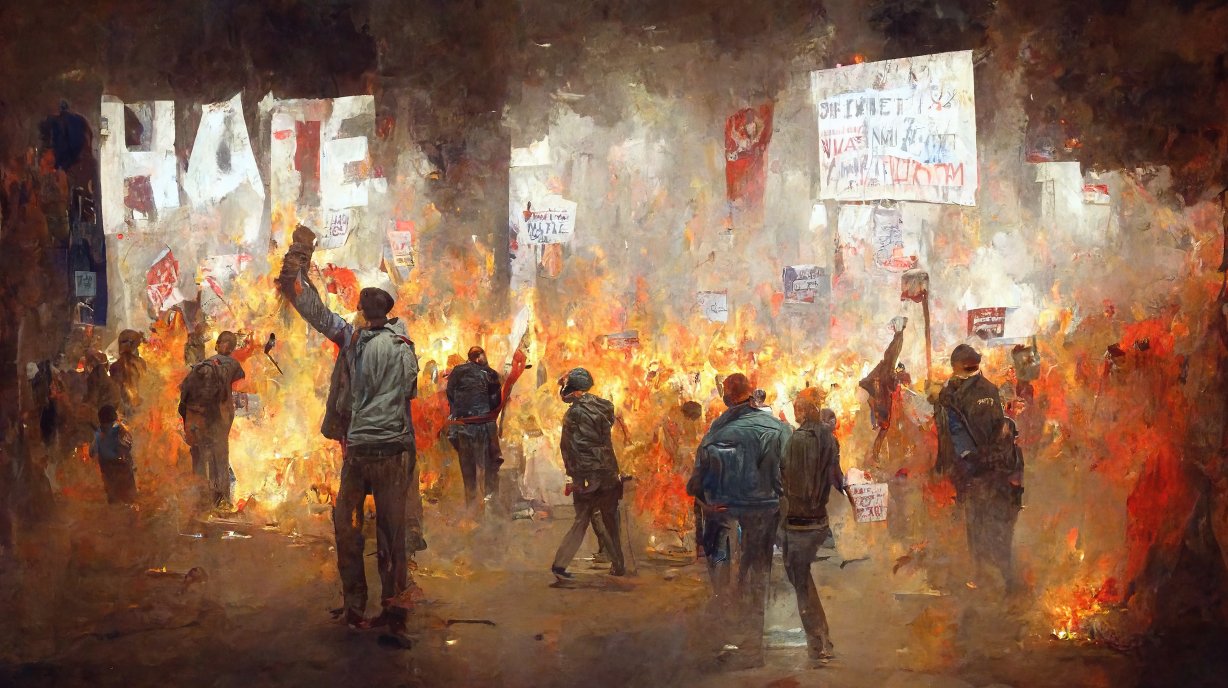
Social justice

Illustration by Rick on Adobe Stock
Wealthy ethnic minorities have a double advantage for autocracies: they are important for the economy and make perfect scapegoats for popular anger. This is a useful phenomenon for deflecting resentment against local authorities and delaying regime change.
On the island of Madagascar, kidnappings are rampant. In the line of fire of the ransom seekers: the Indo-Pakistanis, considered to be more economically well-off. The clichés about the wealth of the "karanas" make them a prime target: in 2017 alone, fifteen people from a community that numbers 15,000 were kidnapped. Despite the creation of a police team dedicated to the phenomenon, the government is slow to address the issue of kidnappings in Madagascar. Is the Indian minority in Madagascar being used as a scapegoat by the local elite? According to the World Bank, 81% of the inhabitants of the Big Island live below the poverty line.
Two economists, Yann Bramoullé and Pauline Morault, have worked on the link between rich ethnic minorities, undemocratic government officials and an angry populace by modeling the interactions between these three parameters.
Historically, rich ethnic minorities have played a central economic role, especially in many developing countries. Chinese communities in Southeast Asia, Indians in East Africa and Jews in medieval Europe have helped shape the national economic landscape. They invest, drive growth and, above all, provide the taxes that allow states to function properly.
Most of the time, local elites seek to attract these groups in the form of advantageous import permits or the awarding of public contracts. Kenyan President Daniel arap Moi, when he took office in 1978, guaranteed economic freedom to the Indian minority community, which had been discriminated against since independence, and offered lucrative opportunities to some of them.
However, in 1982, the Kenyan News Agency broadcast a speech1 by the same president accusing the Indian community of "ruining the national economy," accompanied by threats of eviction. As rice and flour shortages had hit the country a few months earlier, they had become the ideal target to crystallize the anger of the inhabitants, faced with the deterioration of their economic situation.
Amy Chua, an American researcher, gave numerous examples of this phenomenon of redirection of violence in a book published in 2007, The World on Fire. She herself comes from the Chinese minority in the Philippines and refers to groups as diverse as the Kikuyus in Kenya, the Tutsis in Rwanda, the Russians in Central Asia, the whites in South Africa and the Tamils in Sri Lanka. Her thesis of the market-dominant minority can be extended to the Jews of Weimar Germany and the Russian Empire.
Researchers Yann Bramoullé and Pauline Morault show that a state with a rich ethnic minority will experience fewer violent events against it than one without. By turning economic elites into ideal culprits, political elites can buy social peace and stay in power longer. The two researchers develop a model, based on previous research2 , that explores the relationship between political elites, popular discontent, and wealthy minorities in a purely economic context, without regard to religion, hate, or identity.
According to this model, political elites can even go beyond rhetoric to economic scapegoating, through a clever tax game. When the poor majority rises up, popular discontent is directed at one or other of the elites. If the rich community is much richer than the government, violence will naturally be directed at it. If not, and if the threat of violence is very high, local authorities may choose to scapegoat the rich minority by lowering taxes on them to make them richer, or even by redistributing money to the poor majority to make the government poorer. Thus the rich minority becomes a more obvious target again.
An economic crisis, political instability, the ability of the people to act collectively and violently and the potential actions of a populist government will also amplify this phenomenon. In addition, apart from purely economic considerations, autocrats can, for example, use the media, which they often control, to incite hatred or divert attention, as Kenyan President Daniel arap Moi did in the 1980s.
The sacrifice of its economic elite, however, is a costly and unwise last resort. If the threat of violence is not high enough, it is far more beneficial to keep taxes at their optimal level and redistribute them to the poor majority to buy social peace and reduce violence.

Photo by Pressmaster on Adobe Stock
In some cases, political and economic elites can form strong bonds and the scapegoat effect is reduced or eliminated. General Suharto, who led Indonesia from 1968 to 1998, had a very generous policy towards the Chinese community, for example by giving some of his friends’ franchises in the banking and telecom sectors. In exchange, they invested in the projects of the general's relatives, such as an amusement park at the request of his wife. In 1994, he violently repressed the anti-Chinese workers' demonstrations, and stifled any threat against this community even in the press.
Thus the effect is reduced in the case of social integration. The local elites move away from their economic considerations to act in a more altruistic way towards these communities. In this case, it was unthinkable for General Suharto to sacrifice his wealthy minority, and both groups of political and economic elite were seen as guilty of mismanagement of the country. After the general's removal from power in 1998, the Chinese community was targeted for violent abuse as it was deprived of its link to power.
The East African Indian community has not experienced this integration. They live in community neighborhoods, and frequent community schools, hospitals, and clubs. They are far more victimized than the Chinese community in the region, which was established at the same time and is just as economically powerful, but is considered more integrated. One prediction of the model is that cultural and economic mixing between the communities, such as through intermarriage and education or the hiring of local employees, could lead to an interdependence that would reduce the scapegoating phenomenon.
Generally speaking, the richer the ethnic communities become and the poorer the majority becomes, the more the phenomenon grows. The globalization of the last forty years has greatly increased the phenomenon of inequality. These inequalities are particularly striking in the case of sub-Saharan Africa.
In this context, the scapegoating of wealthy minorities has allowed autocracies to remain in place and to delay regime change towards democracy, redistribution of power or structural reforms in the face of popular anger. According to previous research, the threat of popular violence plays a critical role in the process of democratization, and here it is redirected at will towards foreign minorities.
The pandemic that hit the world in 2019 has accelerated a crisis of democracy, with a return in force of the state, while many groups have emerged as losers from globalization. Historically welcomed or rejected by states, wealthy ethnic minorities have in any case always served as an instrument of manipulation for autocratic powers.